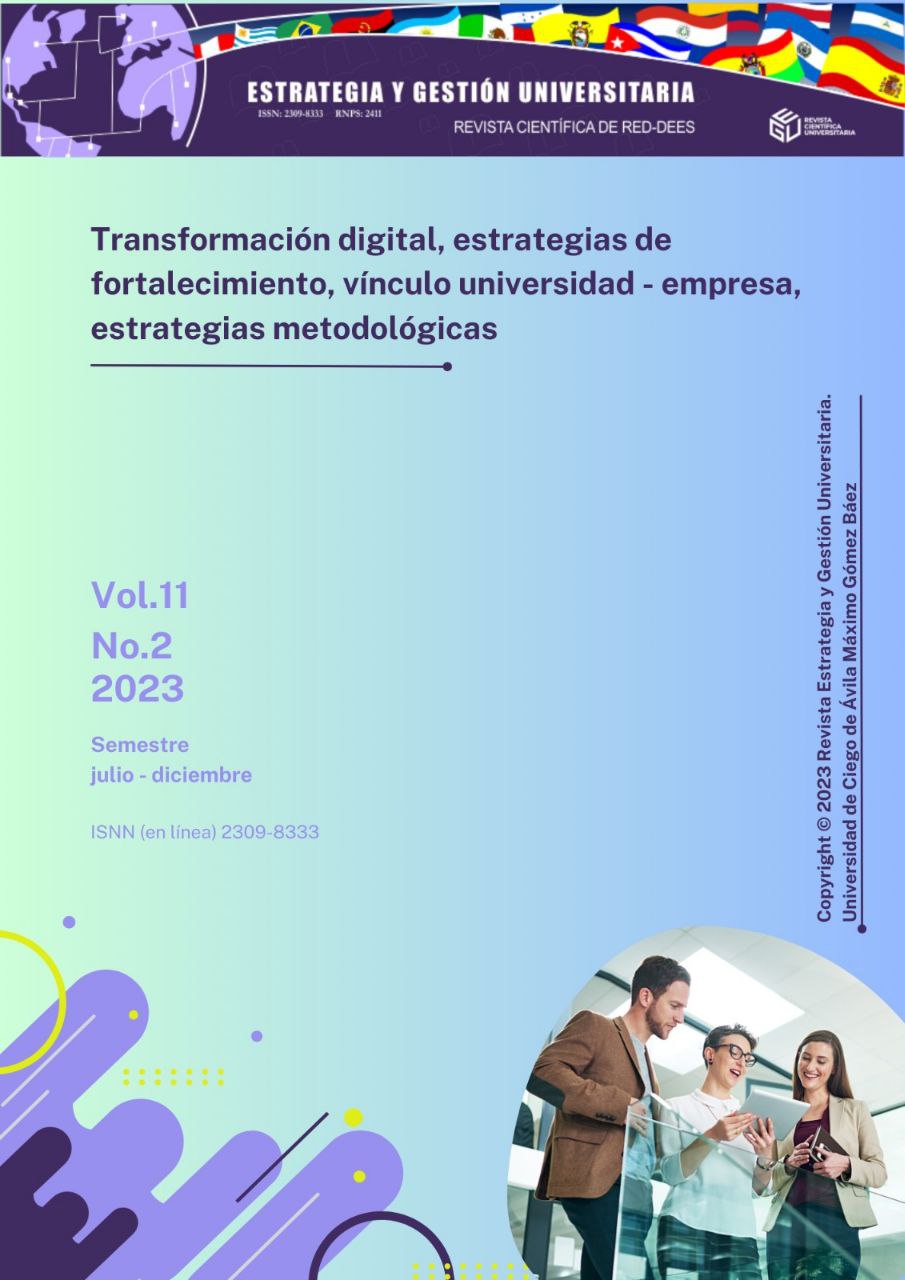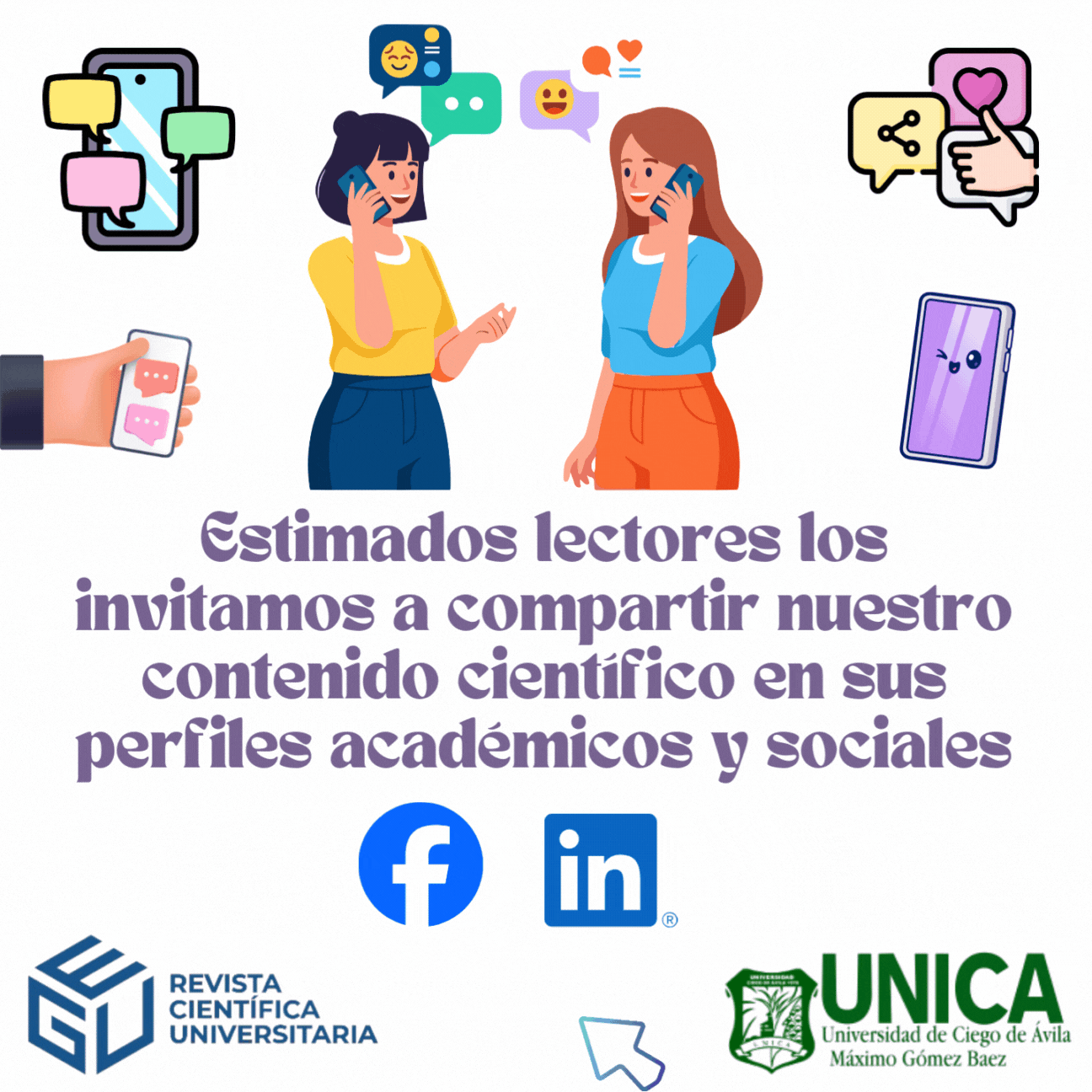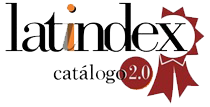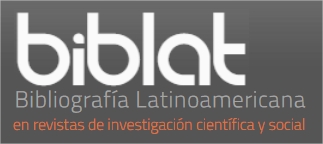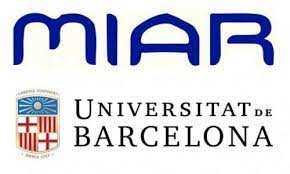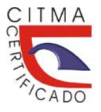La transformación digital en organizaciones de educación superior: estructura intelectual, conceptual y social
DOI:
https://doi.org/10.5281/zenodo.8144775Palabras clave:
transformación digital, organizaciones educativas, instituciones educativas superiores, análisis bibliométricoResumen
Introducción: los avances tecnológicos y sociales, derivados del uso masivo de las tecnologías de la información y la comunicación, están transformando todos los sectores, y la educación no es una excepción. Las organizaciones educativas deben adoptar una Transformación Digital (TD) para hacer frente a una nueva realidad sociocultural, medioambiental y económica actual. Objetivo: analizar la estructura intelectual, conceptual y social de la transformación digital en las organizaciones educativas. Metodología: se ejecutó un estudio con diferentes técnicas bibliométricas. Resultados: la estructura intelectual de la bibliografía aparece tres temas; uno más teórico que explora la TD en las Instituciones de Educación Superior, alertando que ésta es más que un conjunto de herramientas digitales; un segundo clúster apunta a las tres dimensiones de la TD: tecnológica, pedagógica y organización; el tercer grupo analiza la implementación práctica de la TD y la importancia de gestionar las personas en el proceso. Conclusión: en estructura temática, destacan también 3 grupos: el de fundamentos teóricos y conceptual, que revela el COVID-19 como principal factor desencadenante de la TD, el segundo clúster investiga el proceso de aprendizaje a través de una docencia digital y el tercero destaca la importancia de la gestión del cambio cultural.
Descargas
Citas
Abad-Segura, E., González-Zamar, M. D., Infante-Moro, J. C., & García, G. R. (2020). Sustainable management of digital transformation in higher education: Global research trends. Sustainability (Switzerland), 12(5). https://doi.org/10.3390/su12052107
Alenezi, M. (2021). Deep Dive into Digital Transformation in Higher Education Institutions. Education Sciences, 11(770), 1–13. https://doi.org/10.3390/educsci11120770
Alhubaishy, A., & Aljuhani, A. (2021). The challenges of instructors’ and students’ attitudes in digital transformation: A case study of Saudi Universities. Education and Information Technologies. 26(4), 4647–4662. https://doi.org/10.1007/s10639-021-10491-6
Ali, I., & Gölgeci, I. (2019). Where is supply chain resilience research heading? A systematic and co-occurrence analysis. International Journal of Physical Distribution and Logistics Management, 49(8), 793–815. https://doi.org/10.1108/IJPDLM-02-2019-0038
Almatrodi, I., & Skoumpopoulou, D. (2023). Organizational Routines and Digital Transformation: An Analysis of How Organizational Routines Impact Digital Transformation Transition in a Saudi University. Systems, 11(5). https://doi.org/10.3390/systems11050239
Alonso, S., Cabrerizo, F. J., Herrera-Viedma, E., & Herrera, F. (2009). h-Index: A review focused in its variants, computation and standardization for different scientific fields. Journal of Informetrics, 3(4), pp. 273–289. https://doi.org/10.1016/j.joi.2009.04.001
Aparisi-Torrijo, S., & Catalá-Miguel, I. (2021). Use of ICT for flexible and hybrid university teaching: a blended learning model for face-to-face and online learning. 29Th International Conference on Information Systems Development (Isd2021 Valencia, Spain). https://aisel.aisnet.org/isd2014/proceedings2021/methodologies/19/
Baier-Fuentes, H., Merigó, J. M., Amorós, J. E., & Gaviria-Marín, M. (2019). International entrepreneurship: a bibliometric overview. International Entrepreneurship and Management Journal. International Entrepreneurship and Management Journal, 15(2), 385–429. https://doi.org/10.1007/s11365-017-0487-y
Bond, M., Marín, V. I., Dolch, C., Bedenlier, S., & Zawacki-Richter, O. (2018). Digital transformation in German higher education: student and teacher perceptions and usage of digital media. International Journal of Educational Technology in Higher Education, 15(1), 1–20. https://doi.org/10.1186/s41239-018-0130-1
Boyack, K., & Klavans, R. (2010). Co-Citation Analysis, Bibliographic Coupling, and Direct Citation: Which Citation Approach Represents the Research Front Most Accurately? Journal of the American Society for Information Science and Technology, 12(61), 2389– 2404. https://doi.org/10.1002/asi.21419
Brdesee, H., & Alsaggaf, W. (2022). Decision-Making Strategy for Digital Transformation: A Two-Year Analytical Study and Follow-Up Concerning Innovative Improvements in University e-Services. Journal of Theoretical and Applied Electronic Commerce Research, 17(1), 138–164. https://doi.org/10.3390/jtaer17010008
Bryndin, E. (2019). Creative Innovative Higher Education of Researchers with Flexible Skills and Synergy of Cooperation. Contemporary Research in Education and English Language Teaching, 1(1), 1–6. https://doi.org/10.33094/26410230.2019.11.1.6
Bygstad, B., Øvrelid, E., Ludvigsen, S., & Dæhlen, M. (2022). From dual digitalization to digital learning space: Exploring the digital transformation of higher education. Computers and Education, 182. https://doi.org/10.1016/j.compedu.2022.104463
Callahan, J. L. (2010). Constructing a manuscript: Distinguishing integrative literature reviews and conceptual and theory articles. Human Resource Development Review, 9(3), 300–304. https://doi.org/10.1177/1534484310371492
Cancino, C., Merigó, J. M., Coronado, F., Dessouky, Y., & Dessouky, M. (2017). Forty years of Computers & Industrial Engineering: A bibliometric analysis. Computers and Industrial Engineering, 113, 614–629. https://doi.org/10.1016/j.cie.2017.08.033
Castañeda, L., & Selwyn, N. (2018). More than tools? Making sense of the ongoing digitizations of higher education. International Journal of Educational Technology in Higher Education. 15(1). https://doi.org/10.1186/s41239-018-0109-y
Castro Benavides, L. M., Tamayo Arias, J. A., Arango Serna, M. D., Branch Bedoya, J. W., & Burgos, D. (2020). Digital Transformation in Higher Education Institutions: A Systematic Literature Review. Sensors (Basel, Switzerland), 20(11), 1–22. https://doi.org/10.3390/s20113291
Chin, W., Cheah, J. H., Liu, Y., Ting, H., Lim, X. J., & Cham, T. H. (2020). Demystifying the role of causal-predictive modeling using partial least squares structural equation modeling in information systems research. Industrial Management and Data Systems, 120(12), 2161–2209. https://doi.org/10.1108/IMDS-10-2019-0529
Dervis, H. (2019). Bibliometric analysis using bibliometrix an R package. Journal of Scientometric Research, 8(3), 156–160. https://doi.org/10.5530/jscires.8.3.32
Díaz-Chieng, L. Y., Aviles Peralta, Y. A., Artigas, W., & Bustamante Cabrera, G. (2023). WeEditors. org: hacia la visibilidad y sostenimiento de revistas en acceso abierto. Palabra clave, 12(2), 191-191. https://doi.org/10.24215/18539912e191
Díaz-García, V., Montero-Navarro, A., Rodríguez-Sánchez, J. L., & Gallego-Losada, R. (2022). Digitalization and digital transformation in higher education: A bibliometric analysis. Frontiers in Psychology, 13. https://doi.org/10.3389/fpsyg.2022.1081595
Donthu, N., Kumar, S., Mukherjee, D., Pandey, N., & Lim, W. M. (2021). How to conduct a bibliometric analysis: An overview and guidelines. Journal of Business Research, 133, 285–296. https://doi.org/10.1016/j.jbusres.2021.04.070
Elena, F. (2017). Embedding digital teaching and learning practices in the modernization of higher education institutions. Education, Section.
Ellegaard, O., & Wallin, J. A. (2015). The bibliometric analysis of scholarly production: How great is the impact? Scientometrics, 105(3), https://doi.org/10.1007/s11192-015-1645-z
Erdmann, A., Estrada Presedo, A., & De Miguel Valdés, M. (2021). Digital Transformation of Universities: The Influence of COVID-19 and Students’ Perception. Multidisciplinary Journal for Education, Social and Technological Sciences, 8(2), 19-41. https://doi.org/10.4995/muse.2021.16007
García-Peñalvo, F. J. (2021a). Avoiding the dark side of digital transformation in teaching. an institutional reference framework for eLearning in higher education. Sustainability (Switzerland), 13(4), 1–17. https://doi.org/10.3390/su13042023
García-Peñalvo, F. J. (2021b). Digital transformation in the universities: Implications of the covid-19 pandemic. Education in the Knowledge Society, 22. https://doi.org/10.14201/eks.25465
Gaviria-Marín, M. (2021). Bibliometrics and business. A challenge for researchers. Inquietud Empresarial, 21(1), pp. I–III. https://revistas.uptc.edu.co/index.php/inquietud_empresarial/article/view/12931
Gobble, M. M. (2018). Digitalization, digitization, and innovation. Research-Technology Management, 61(4), 56-59. https://doi.org/10.1080/08956308.2018.1471280
Grajek, S., & Reinitz, B. (2019). Getting Ready for Digital Transformation: Change Your Culture, Workforce, and Technology. Educase Review.
Henderson, M., Selwyn, N., & Aston, R. (2017). What works and why? Student perceptions of “useful” digital technology in university teaching and learning. Studies in Higher Education, 42 (8), 1567–1579. https://doi.org/10.1080/03075079.2015.1007946
Hernando Calvo, A. (2015). Viaje a la Escuela del Siglo XXI: Así trabajan los colegios más innovadores del mundo. Fundación Telefónica.
Hirsch, J. E. (2005). An index to quantify an individual’s scientific research output. Proceedings of the National Academy of Sciences of the United States of America, 102(46), 16569–16572. https://doi.org/10.1073/pnas.0507655102
Jackson, N. C. (2019). Managing for competency with innovation change in higher education: Examining the pitfalls and pivots of digital transformation. Business Horizons, 62(6), 761–772. https://doi.org/10.1016/j.bushor.2019.08.002
Kulkarni, L., & Ghosh, A. (2021). Disparidad de género en la digitalización de los servicios financieros: desafíos y promesas para la inclusión financiera de las mujeres en la India. gentil Tecnología desarrollo, 25, 233–250. https://doi.org/10.1080/09718524.2021.1911022
Kuzu, Ö. H. (2020). Digital transformation in higher education: A case study on strategic plans. Vysshee Obrazovanie v Rossii, 29(3), 9–23. https://doi.org/10.31992/0869-3617-2019-29-3-9-23
Lillejord, S., et al. (2018). Learning and teaching with technology in higher education–a systematic review. Oslo: Knowledge Centre for Education.
Limani, Y., Hajrizi, E., Stapleton, L., & Retkoceri, M. (2019). Digital transformation readiness in higher education institutions (hei):the case of kosovo. IFAC-PapersOnLine, 52(25), 52–57. https://doi.org/10.1016/j.ifacol.2019.12.445
Livari, N., Sharma, S., & Ventä-Olkkonen, L. (2020). Digital transformation of everyday life – How COVID-19 pandemic transformed the basic education of the young generation and why information management research should care? International Journal of Information Management, 55, 102183. https://doi.org/10.1016/j.ijinfomgt.2020.102183
Llorens-Largo, F. (2020). Transformación digital versus digitalización. In Universídad; Studia XXI.
Maltese, V. (2018). Digital transformation challenges for universities: Ensuring information consistency across digital services. Cataloging and Classification Quarterly, 56(7), 592–606. https://doi.org/10.1080/01639374.2018.1504847
Matt, C., Hess, T., & Benlian, A. (2015). Digital Transformation Strategies. Business and Information Systems Engineering, 57(5), 339–343. https://doi.org/10.1007/s12599-015-0401-5
Merigó, J. M., Cancino, C. A., Coronado, F., & Urbano, D. (2016). Academic research in innovation: a country analysis. Scientometrics, 108(2), 559–593. https://doi.org/10.1007/s11192-016-1984-4
Merigó, J. M., Mas-Tur, A., Roig-Tierno, N., & Ribeiro-Soriano, D. (2015). A bibliometric overview of the Journal of Business Research between 1973 and 2014. Journal of Business Research, 68(12), 2645–2653. https://doi.org/10.1016/j.jbusres.2015.04.006
Mohamed Hashim, M. A., Tlemsani, I., & Matthews, R. (2022). Higher education strategy in digital transformation. Education and Information Technologies, 27(3), 3171–3195. https://doi.org/10.1007/s10639-021-10739-1
Mukherjee, D., Lim, W. M., Kumar, S., & Donthu, N. (2022). Guidelines for advancing theory and practice through bibliometric research. Journal of Business Research, 148, 101–115. https://doi.org/10.1016/j.jbusres.2022.04.042
Novillo Maldonado, E. F., Espinoza Galarza, M. O., & Guerrero Jiron, J. R. (2017). Influencia de las TIC en la educación universitaria, caso Universidad Técnica de Machala. INNOVA Research Journal, 2(3), 69–79. https://doi.org/10.33890/innova.v2.n3.2017.136
Paz Enrique, L. E., Díaz-Chieng, L. Y., & Hernández Alfonso, E. A. (2023). Plagio académico y revistas científicas: criterios, acciones y concepciones para su prevención. Revista Conrado, 19(95), 188-198. https://conrado.ucf.edu.cu/index.php/conrado/article/download/3412/3259
Pazos, A. J. B., Ruiz, B. C., & Pérez, B. M. (2020). Digital transformation of university teaching in communication during the covid-19 emergency in spain: An approach from students’ perspective. Revista Latina de Comunicacion Social, 78, 265–287. https://doi.org/10.4185/RLCS-2020-1477
Pham, H., Tran, Q. N., La, G. L., Doan, H. M., & Vu, T. D. (2021). Readiness for digital transformation of higher education in the Covid-19 context: The dataset of Vietnam’s students. Data in Brief, 39, 107482. https://doi.org/10.1016/j.dib.2021.107482
Pucciarelli, F., & Kaplan, A. (2016). Competition and strategy in higher education: Managing complexity and uncertainty. Business Horizons. “Kelley School of Business, Indiana University,” 59(3), 311–320. https://doi.org/10.1016/j.bushor.2016.01.003
Rodríguez Sotomayor, Y., Díaz-Chieng, L. Y., Paz Enrique, L. E., Iznaga Brooks, H. L., Pérez Mola, K., & Calás Torres, J. J. (2023). Gender approach in the activity and scientific production of Cuban medical university journals. Data and Metadata, 2, 199. https://doi.org/10.56294/dm2023199
Rodríguez-Abitia, G., & Bribiesca-Correa, G. (2021). Assessing digital transformation in universities. Future Internet, 13(2), 1–17. https://doi.org/10.3390/fi13020052
Rodríguez-Abitia, G., Martínez-Pérez, S., Ramirez-Montoya, M. S., & Lopez-Caudana, E. (2020). Digital gap in universities and challenges for quality education: A diagnostic study in Mexico and Spain. Sustainability (Switzerland), 12(21), 1–14. https://doi.org/10.3390/su12219069
Røe, Y., Wojniusz, S., & Bjerke, A. H. (2022). The Digital Transformation of Higher Education Teaching: Four Pedagogical Prescriptions to Move Active Learning Pedagogy Forward. Frontiers in Education, 6, 1–6. https://doi.org/10.3389/feduc.2021.784701
Rof, A., Bikfalvi, A., & Marquès, P. (2020). Digital transformation for business model innovation in higher education: Overcoming the tensions. Sustainability (Switzerland), 12(12). https://doi.org/10.3390/su12124980
Rof, A., Bikfalvi, A., & Marques, P. (2022). Pandemic-accelerated Digital Transformation of a Born Digital Higher Education Institution: Towards a Customized Multimode Learning Strategy. Educational Technology and Society, 25(1), 124–141.
Serna, M. D. A., Branch, J. W., Benavides, L. M. C., & Burgos, D. (2018). A conceptual model of digital transformation. openergy and thecase study of universidad nacional de colombia. Education in the Knowledge Society, 19(4), 95–107. https://doi.org/10.14201/EKS201819495107
Sinclair, J., & Aho, A. M. (2018). Experts on super innovators: understanding staff adoption of learning management systems. Higher Education Research and Development, 37(1), 158–172. https://doi.org/10.1080/07294360.2017.1342609
Suárez, L. M. C., Núñez-Valdés, K., & Alpera, S. Q. Y. (2021). A systemic perspective for understanding digital transformation in higher education: Overview and subregional context in latin america as evidence. Sustainability (Switzerland), 13(23). https://doi.org/10.3390/su132312956
Tay, H. L., & Low, S. W. K. (2017). Digitalization of learning resources in a HEI – a lean management perspective. International Journal of Productivity and Performance Management, 66(5), 680–694. https://doi.org/10.1108/IJPPM-09-2016-0193
Teixeira, A. F., Gonçalves, M. J. A., & Taylor, M. de L. M. (2021). How higher education institutions are driving to digital transformation: A case study. Education Sciences, 11(10). https://doi.org/10.3390/educsci11100636
Torres-Ruiz, M., & Moreno-Ibarra, M. (2019). Challenges and Opportunities in the Digital Transformation of the Higher Education Institutions: The Case of Mexico. Management and Administration of Higher Education Institutions at Times of Change,137–150. https://doi.org/10.1108/978-1-78973-627-420191012
Toth, C., Helic, D., & Geiger, B. C. (2022). Synwalk: community detection via random walk modelling. Springer US. https://doi.org/10.1007/s10618-021-00809-w
Van Eck, N. J., & Waltman, L. (2010). Software survey: VOSviewer, a computer program for bibliometric mapping. Scientometrics, 84(2), 523–538. https://doi.org/10.1007/s11192-009-0146-3
Vial, G. (2019). Understanding digital transformation: A review and a research agenda. Journal of Strategic Information Systems, 28(2), 118–144. https://doi.org/10.1016/j.jsis.2019.01.003
Vinikurova, N. V., Mazurenko, O. V., Prikhodchenko, T. N., & Ulanova, S. L. (2021). Digital transformation of educational content in the pedagogical higher educational institution. Apuntes Universitarios, 11 (3), 383–395.
Warner, K. S. R., & Wäger, M. (2019). Building dynamic capabilities for digital transformation: An ongoing process of strategic renewal. Long Range Planning, 52(3), 326–349. https://doi.org/10.1016/j.lrp.2018.12.001
Zupic, I., & Čater, T. (2015). Bibliometric Methods in Management and Organization. Organizational Research Methods, 18(3), 429–472. https://doi.org/10.1177/1094428114562629
Publicado
Versiones
- 2023-09-14 (2)
- 2023-09-13 (1)
Cómo citar
Número
Sección
Licencia
Derechos de autor 2023 Estrategia y Gestión Universitaria

Esta obra está bajo una licencia internacional Creative Commons Atribución-NoComercial-CompartirIgual 4.0.

